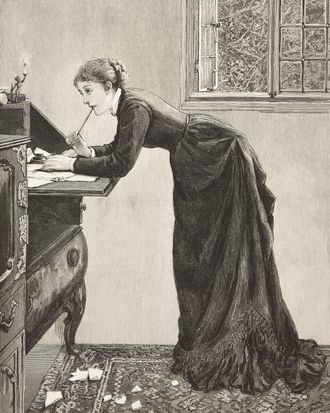
I spent a lot of time this past year feeling unhappy with my life. “Technically” I was grateful, “technically” I knew I was lucky, but I’d often say those things just to get them out of the way so that I could complain more effectively. Yes, I know I have it so good, but also, let me tell you about this thing I need, or this other thing that’s ruining my life.
Meanwhile, the idea of being truly grateful for things, and of going so far as having a “gratitude practice,” kept coming up in books and stories. Gratitude is the key to life, these stories suggested. It’s the cornerstone of calmness, the right lens through which to view the human experience. In theory, this all tracked, but it also felt … annoying. Trite, obvious, even stupid. (Also: obnoxious, enraging, and offensive!) Like, yes, sure, of course. Gratitude is the foundational virtue. I know, I know! Some stories even recommended keeping a gratitude journal. (Who does that?)
But still, I was preoccupied by all these ways my life wasn’t exactly how I wanted it to be, and that didn’t seem like a great way to live.
Once I started nosing around online, I came across a sensible-seeming guide and reached out to one of its authors, Robin Stern, the associate director of the Yale Center for Emotional Intelligence. Over the phone, she acknowledged that certain basic, internal gratitude practices, like enumerating thanks and keeping a gratitude journal, were indeed helpful, but that a more active gratitude practice was arguably even better. Specifically, she advocated for developing a gratitude practice that involves telling people things — thanking them, explicitly, for the gestures and actions that have been especially meaningful. Think of people who did things that made a difference in your life, she said, and tell them so.
“Email people,” she said. “Text them. Call them up.” In person works, too: “When you see the person, say, ‘I’m really grateful for how much you’ve been there for me,’ or something like that.” Your expression of gratitude doesn’t have to be a lengthy one, she noted: “A simple expression goes a long way.” Afterward, not only are the people being contacted “filled with emotion,” she said, but the people giving the gratitude also feel lifted. “And the more you do it, the more a way of life it becomes.”
It made me think of a seemingly gruff boss I once had who was also known, quietly, for unexpectedly delivering meaningful — even sanity-preserving — compliments and praise.
I thought of him and then wondered, Well, should I thank him for that now? Should I risk making him uncomfortable and sounding weird and sappy?
Yes, Stern argues, it’s usually worth it. Even if someone seems flustered or embarrassed, these are often the moments that we carry with us for the rest of our lives. “Gratitude sounds corny,” she went on, “because people typically don’t talk about or express it.” The earnestness and the depth of feeling can also be uncomfortable for the person expressing gratitude: “There’s a rawness in telling someone how much their gesture of kindness of generosity — or of just being there — meant to you.” Moreover, “some people feel like letting someone know they’re important gives away too much power.”
I related to this last part. I’ve definitely shied away from letting people know how I really feel in part because … what? I’m afraid that the jig will be up, that the tension will break, that my mask will be off? They’ll lose interest once I roll over?
Of course, there’s always a risk that the person you’re thanking will push it away or pretend like the gesture was nothing, and that you’re ridiculous to be remembering it all these years later. “But you’re probably still going to feel good about it,” Stern said, “because you gave a gift to someone. You let them know: You’re important to me, and that was really special.” And my guess is they’re actually going to like it, too, even if they put up a fuss.
I ended up trying to thank my former boss in an awkward email. He wrote back 15 minutes later, saying he appreciated it.

